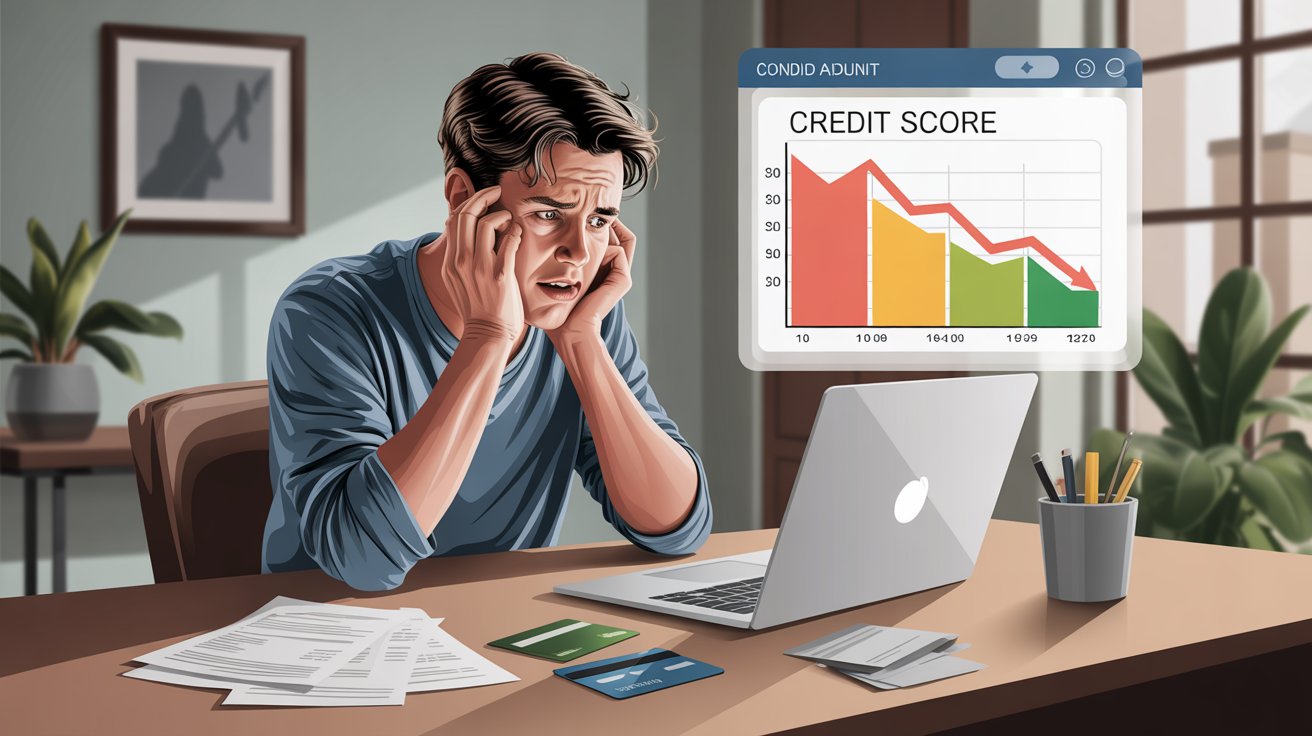
A sudden drop in your credit score can feel like a financial nightmare, especially when you’re unsure why it happened. Your credit score is more than just a number—it affects your ability to get loans, credit cards, and even certain jobs. Understanding the common causes of a score drop and taking immediate steps to improve it is essential. Here’s a guide to help you identify the reasons your score fell and strategies to repair it quickly.
1. Late or Missed Payments
One of the most common reasons for a credit score drop is late payments. Even a single missed payment can significantly impact your score. To improve:
- Set up automatic payments or reminders.
- Pay at least the minimum due on time each month.
2. High Credit Utilization
Your credit utilization ratio—how much of your available credit you’re using—plays a huge role in your score. Using more than 30% of your credit limit can lower your score. To improve:
- Pay down credit card balances.
- Request a credit limit increase to lower utilization.
3. Applying for Multiple Credit Accounts
Opening several new credit accounts in a short period can signal risk to lenders, causing a temporary score drop. To improve:
- Space out new credit applications.
- Only apply for credit when necessary.
4. Errors on Your Credit Report
Sometimes, your score drops due to mistakes in your credit report, such as incorrect late payments or accounts that don’t belong to you. To improve:
- Check your credit report regularly.
- Dispute any errors with the credit bureau immediately.
5. Closing Old Accounts
Closing older accounts can reduce your credit history length, which may negatively affect your score. To improve:
- Keep old accounts open, especially those in good standing.
- Use them occasionally to keep them active.
6. Foreclosures, Collections, or Bankruptcies
Major financial events like foreclosures, collections, or bankruptcy have a severe impact on credit scores. To improve:
- Focus on paying off collections or debts in default.
- Work with a credit counselor for bankruptcy recovery strategies.
7. Changes in Your Credit Mix
Your credit score benefits from a mix of credit types (credit cards, loans, mortgage). Reducing the variety can affect your score. To improve:
- Maintain a healthy mix of credit types.
- Don’t close installment loans unnecessarily.
8. Identity Theft or Fraudulent Activity
Unauthorized accounts or charges can damage your credit score quickly. To improve:
- Monitor accounts for suspicious activity.
- Report fraud immediately and freeze your credit if necessary.
Foolproof Tips to Improve Your Credit Score Quickly
- Pay bills on time consistently.
- Reduce credit card balances to below 30% of your limit.
- Check your credit report for errors regularly.
- Avoid multiple new credit applications at once.
- Diversify your credit types responsibly.
- Work with a credit counselor if major negative events occurred.
By understanding the causes and taking proactive steps, you can repair your credit score and regain financial stability. Remember, credit improvement is a marathon, not a sprint—but with consistent action, you can see results in a few months.
credit score drop, why did my credit score drop, improve credit score fast, credit score tips, credit report errors, fix credit score, high credit utilization, credit card tips, credit repair strategies, 2025 credit score guide